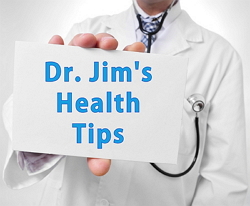
Three-fourths of all adults in the United States regularly take prescription medicines which are remarkable aids to maintaining healthy lifestyles. When taking these lifesaving components, it is essential not to manage them unless you are a health professional. I am, but I always use my doctor’s management for my meds without alteration.
Over time, one may decide to see about taking fewer meds because they seem to be doing well. Don’t do it on your own, especially with meds intended to treat heart problems, cholesterol, blood pressure, or diabetes. Instead, when making appointments for routine checkups, ask if any meds can safely be diminished or discontinued.
Generic medications are rigorously tested by the FDA to be sure they are identical to branded meds and that they are absorbed the same by the body. YES, SAME. Since generics average costs one-fifth as much, ask your doctor if they are available and will meet your needs.
Choose to use one pharmacy so medications are checked to be certain they won’t interact badly. You can get to know the pharmacist as a trained medical professional; they can certainly be helpful to you. Also, the pharmacist can tell you which over-the-counter (OTC) meds they recommend because not all are the same and might interact with your prescription meds. Be sure to ask about the safety of OTCs for you before taking meds for a cold.
You can also ask your pharmacist to get all your medicine on the same refill schedule. This will help you manage your medication
refills more conveniently. Further, your long-term prescriptions can be filled for 90 days for further convenience.
Follow instructions for taking meds carefully because they are there for a reason. Meds that are to be taken with food may irritate the lining of an empty stomach. Avoid grapefruit juice with meds and take calcium (milk, etc.) with antibiotics.
Take statins at bedtime, advises the British Heart Foundation. Here’s why: Cholesterol production in the liver is highest after
midnight and lowest during the morning and early afternoon, so statins are most effective when taken just before bedtime.
New research suggests that the best time for people with hypertension to take their blood pressure pills is at bedtime
rather than in the morning.
Antidepressants called selective serotonin reuptake inhibitors, or SSRIs, are taken in the morning because they can interfere with sleep, especially as you begin taking them, an expert says. Heartburn meds (Protein Pump Inhibitors, PPIs) need to be taken on an empty stomach 20 to 30 minutes before breakfast. But if you have mainly evening or nighttime symptoms, ask your doctor about taking omeprazole 20 to 30 minutes before dinner on an empty stomach since none of the PPIs truly lasts 24 hours.”
However, many meds last 24 hours, which can reduce missed doses; plus, one might arrange to take all one’s meds simultaneously.

